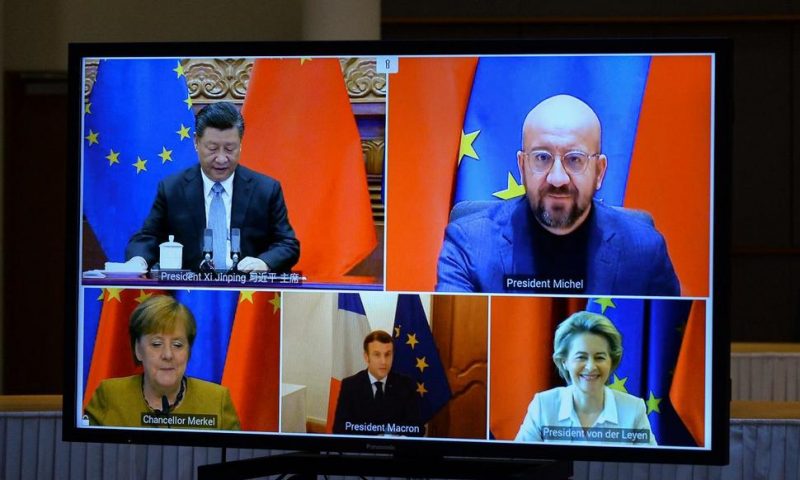European Union top officials and Chinese President Xi Jinping have concluded a long-awaited business investment deal with the potential to annoy the new American administration.
BRUSSELS — Top European Union officials and Chinese President Xi Jinping concluded a business investment deal Wednesday that will open big opportunities to European companies, but has the potential to irk the new American administration.
Amid concerns about the human rights situation in China, the EU said the seven-year-long negotiations were concluded “in principle” during a videoconference involving Xi, European Commission president Ursula von der Leyen and EU Council president Charles Michel.
German Chancellor Angela Merkel — whose country holds the rotating presidency of the EU — and French president Emmanuel Macron also took part in the discussions with the Chinese president, the EU said.
“We are open for business but we are attached to reciprocity, level playing field and values,” von der Leyen said.
The videoconference launched a ratification process that will take several months as the text of the agreement still needs to be legally reviewed and translated before it is approved by the EU Council. To enter into force, the agreement will then need to be ratified by the European Parliament, and the issue of human rights could be a sticking point.
According to the EU, the deal was brokered after China committed to pursue ratification of the International Labor Organization’s rules on forced labor.
On Tuesday, the EU expressed concerns about “the restrictions on freedom of expression, on access to information, and intimidation and surveillance of journalists, as well as detentions, trials and sentencing of human rights defenders, lawyers, and intellectuals in China.”
Macron stressed EU nations’ “concerns” over human rights and called for the “closing of internment camps,” according to the speech provided by his office. He also pleaded in favor of “measures aiming at banning forced labor” and wished for “a visit of independent experts from the United Nations.”
The EU hopes the agreement, known as CAI, will help correct an imbalance in market access and create new investment opportunities for European companies in China by ensuring they can compete on an equal footing when operating in the country. EU companies face competition from state-owned Chinese enterprises that may get government support and easier access to financing.
“The EU has traditionally been much more open than China to foreign investment,” the EU said. “This is true as regards foreign investment in general. China now commits to open up to the EU in a number of key sectors.”

